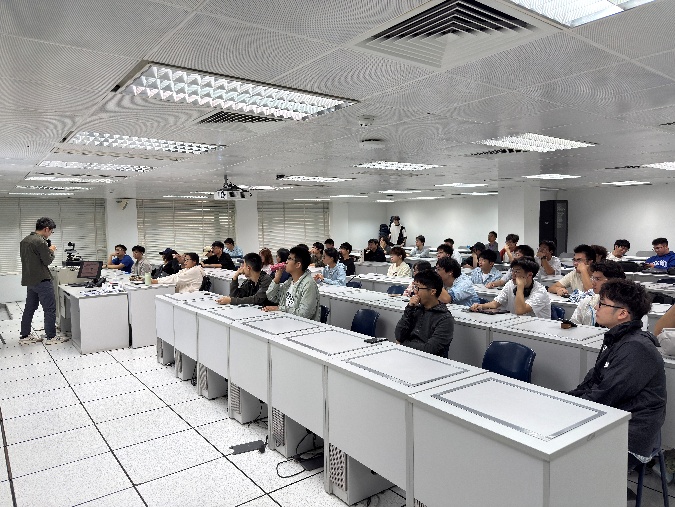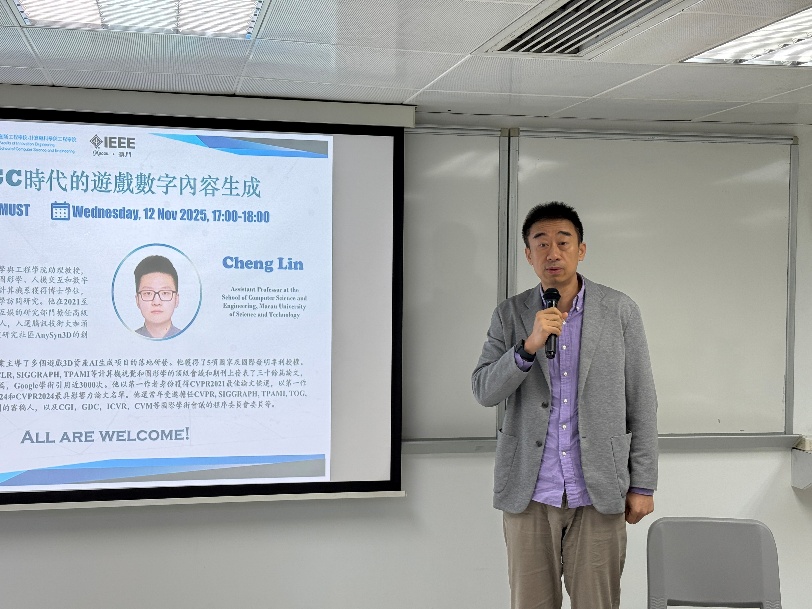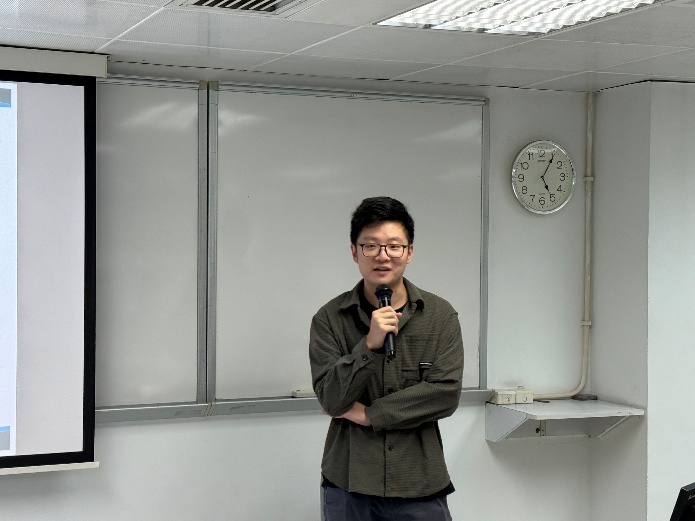On November 12, 2025, the first lecture in the series jointly hosted by the IEEE Macau Section and the MUST School of Computer Science and Engineering was successfully held. Assistant Professor Lin Cheng from the School of Computer Science and Engineering of Faculty of Innovation Engineering at Macau University of Science and Technology delivered a presentation titled “Game Digital Content Generation in the AIGC Era,” providing an in-depth analysis for attending teachers and students on the revolutionary changes generative AI is bringing to the gaming industry.

Lecture
First, Professor Li Xiaodong, Chairman of the IEEE Macau Section and Assistant Dean of the Faculty of Innovation Engineering at MUST, delivered an opening speech. He not only introduced the core purpose of the lecture series in building an academic exchange platform and promoting industry technology discussions, but also introduced the speaker, Assistant Professor Lin Cheng, to the attending teachers and students.

Professor Li Delivering the Opening Speech
In his presentation, Assistant Professor Lin Cheng proposed that the value of games has long transcended mere entertainment, becoming a comprehensive carrier that integrates technology, art, and culture. He emphasized that the gaming field is not only a frontier for constructing ultra-large-scale digital scenes, but also a key testing ground for artificial intelligence applications, and plays an important role in promoting cultural creativity to "go global."

Assistant Professor Lin Cheng Sharing
During the lecture, Assistant Professor Lin Cheng reviewed the development history of "next-generation games." He stated that upgrades in hardware performance and breakthroughs in graphics rendering technology have driven modern games to achieve cinematic-level visual presentation and immersive experiences. Using Genshin Impact, Cyberpunk 2077, and GTA VI as examples, he pointed out that such top-tier works represent the pinnacle of industry technology while also revealing the reality of continuously rising production costs. To address this challenge, Assistant Professor Lin Cheng noted that "AI + Gaming" has become a new industry trend to break the deadlock. He introduced how generative AI is comprehensively permeating the entire process of game art asset production, including character modeling, scene design, and animation generation, not only significantly improving development efficiency but also expanding the boundaries of creative expression. The multiple cutting-edge research achievements he showcased demonstrate that related technological breakthroughs have advanced the production of digital characters and 3D assets toward automation and personalization, opening up entirely new paths for game development.
Regarding the future of the gaming industry, Assistant Professor Lin Cheng believes that future game worlds will break free from the constraints of preset scripts, evolving into intelligent interactive spaces generated in real-time by AI and capable of precisely understanding player intentions. Traditional passive NPCs will also be upgraded to virtual intelligent agents with autonomous emotions and strategic thinking. In the subsequent Q&A session, he particularly emphasized that technology is ultimately a supporting tool, and "fun" is the core of games. Although AIGC can enhance development efficiency and content expressiveness, the core value of games will always depend on players' experiences and feelings.
In the 2025-2026 academic year, the IEEE Macau Section and the MUST School of Computer Science and Engineering will continue to jointly host the lecture series, bringing the latest industry developments and research trends to students and the industry, and promoting development in related fields in Macao.





